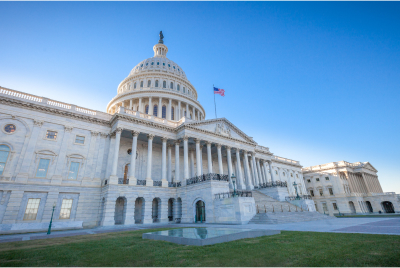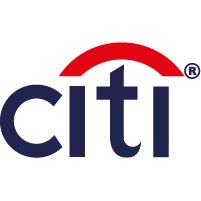COMPETITION AMONG AIRLINES GIVES CONSUMERS THE POWER OF CHOICE. LEARN MORE
- Our Priorities
- Airlines Fly Green
- News & Events
- Our Blog: A Better Flight Plan
- We Connect the World
Protect our Points
Millions of Americans use airline credit cards every day to accumulate points and earn rewards that allow them to travel, explore and create new memories. The Durbin-Marshall Credit Card Competition bill could eliminate these popular credit cards and cost travelers their points.
Tell Congress to Protect Our Points!
Last year, 15 million Americans booked air travel with points from airline credit cards. But that would all end if Congress passes the Durbin-Marshall credit card bill.

By The Numbers
The threat to airline cardholders, we urge congress to consider the negative impacts this legislation will have on the millions of consumers who use credit cards to accrue reward points, including airline miles, each and every day., the impact of the durbin-marshall bill on air travel by state, the impact of airline credit cards in 2022, frequently asked questions.
Airlines partner with banks, community financial institutions and credit unions to provide consumers with credit options featuring rewards programs that accumulate points/miles every time they use a card. These programs allow airlines to reward their most loyal customers with perks such as free checked bags, upgraded seats, priority status and even free trips and vacations!

Durbin-Marshall would pad merchants’ (and their shareholders’) pockets at the expense of consumers. This proposed mandate would eliminate a consumer’s choice over which network their transactions are routed, allowing retailers to choose to process transactions over a second, different network – not necessarily the trusted network selected by the consumer. What’s worse is that merchants wouldn’t have to pass on to consumers any savings from choosing a different, discount network, but rewards programs would likely be eliminated.

Interchange is a fee charged to retailers who choose to accept electronic payments used to fund rewards programs, as well as customer service, system operations, protection of customer data, card production and other costs associated with running a safe and efficient system. Learn more here .

Yes. In 2010, Senator Durbin enacted a similar provision aimed at debit cards into the Dodd-Frank Act of 2010. Today, debit card rewards have been nearly eliminated.

Call your senators today and tell them you like the travel opportunities created by your credit card rewards and to oppose the Durbin-Marshall Credit Card Competition Act.

Tell Congress to #ProtectOurPoints
Tell them you like the travel opportunities created by your credit card rewards and to oppose the Durbin-Marshall credit card bill.
What They Are Saying
Featured coverage.
- Election 2024
- Entertainment
- Newsletters
- Photography
- Personal Finance
- AP Investigations
- AP Buyline Personal Finance
- AP Buyline Shopping
- Press Releases
- Israel-Hamas War
- Russia-Ukraine War
- Global elections
- Asia Pacific
- Latin America
- Middle East
- Election Results
- Delegate Tracker
- AP & Elections
- Auto Racing
- 2024 Paris Olympic Games
- Movie reviews
- Book reviews
- Financial Markets
- Business Highlights
- Financial wellness
- Artificial Intelligence
- Social Media
Orlando Cepeda dies
DOT puts airline loyalty programs under the microscope after lawmakers raise concerns
FILE - Commercial airline passengers wait, and make their way through the ticketing level at Chicago’s Midway International Airport Friday, May 26, 2023, in Chicago. The Department of Transportation is investigating possible deceptive practices in airline loyalty programs after federal lawmakers raised concerns about how airlines are calculating points and rewards.(AP Photo/Charles Rex Arbogast, File)
- Copy Link copied
The Department of Transportation is investigating possible deceptive practices in airline loyalty programs after federal lawmakers raised concerns about how companies are calculating points and rewards.
A DOT spokesperson said Friday in a statement that the agency is planning “to carefully review complaints regarding loyalty programs and exercise our authority to investigate airlines for unfair and deceptive practices that hurt travelers as warranted.”
The spokesperson said agency officials are actively meeting with U.S. airlines and gathering more information about the issue.
Airlines for America, which represents the largest U.S. carriers, declined to comment.
The department is stepping up its scrutiny after two U.S. senators asked the agency and the Consumer Financial Protection Bureau about the steps they’re taking to protect consumers from “deceitful marketing tactics” in frequent flyer programs.
In a letter sent to Secretary of Transportation Pete Buttigieg and CFPB Director Rohit Chopra in late October, U.S. Sens. Dick Durbin and Roger Marshall pointed to reports that suggest airlines are changing points systems – and even devaluing points – to make it harder to achieve rewards. The letter said this can stem from unilateral contracts that allow airlines to make changes to their points programs without directly notifying consumers.
Airlines design loyalty programs to keep their most lucrative customers coming back.
In October, Southwest Airlines lowered the requirement for the top levels of its frequent-flyer program to lure in travelers dissatisfied with other airlines that are making it harder to reach elite status .
- Credit cards
- View all credit cards
- Banking guide
- Loans guide
- Insurance guide
- Personal finance
- View all personal finance
- Small business
- Small business guide
- View all taxes
You’re our first priority. Every time.
We believe everyone should be able to make financial decisions with confidence. And while our site doesn’t feature every company or financial product available on the market, we’re proud that the guidance we offer, the information we provide and the tools we create are objective, independent, straightforward — and free.
So how do we make money? Our partners compensate us. This may influence which products we review and write about (and where those products appear on the site), but it in no way affects our recommendations or advice, which are grounded in thousands of hours of research. Our partners cannot pay us to guarantee favorable reviews of their products or services. Here is a list of our partners .
Is Congress Going to Kill Credit Card Rewards?

Kenley Young directs daily credit cards coverage for NerdWallet. Previously, he was a homepage editor and digital content producer for Fox Sports, and before that a front page editor for Yahoo. He has decades of experience in digital and print media, including stints as a copy desk chief, a wire editor and a metro editor for the McClatchy newspaper chain.

Erin is a credit card and travel rewards expert at NerdWallet, based in Baltimore, Maryland. She has spent nearly two decades showing readers unique ways to maximize their investments and personal finances. Prior to joining NerdWallet, Erin worked on dozens of newsletters and magazines in the areas of investing, health, business and travel with Agora Publishing. Her love of travel led to a passion for credit card and loyalty rewards to subsidize trips, and she thrives on teaching others how to harness the power of credit card rewards. When she's not writing or editing, Erin is planning her next adventure for her family of four using points and miles. Erin recommends this card as the cornerstone for all travelers looking to build up their rewards portfolio - see it here.

Many or all of the products featured here are from our partners who compensate us. This influences which products we write about and where and how the product appears on a page. However, this does not influence our evaluations. Our opinions are our own. Here is a list of our partners and here's how we make money .
Credit card rewards are so common these days — so expected, even — that they can seem untouchable. But that could change.
Legislation known as the Credit Card Competition Act, first introduced in Congress in 2022, is described by its sponsors as encouraging “competition in electronic credit transactions.” But if lawmakers end up passing the measure, opponents say it could also torpedo the rich rewards and perks that cardholders have enjoyed for years.
“Will consumers lose? Probably,” wrote Brian Riley, director of the credit advisory service at Mercator Advisory Group, in an August 2022 post to the Mercator blog. “Their reward programs will dry up, just as they did with debit cards.”
The legislation failed to pass in 2022, but its sponsors reintroduced it in June 2023. Here’s what’s behind the measure and what it could mean for your wallet if it passes.
Merchants push for lower fees
Credit card rewards are funded, at least in part, by fees that merchants pay. When you use a credit card to make a purchase, the retailer is charged somewhere around 1% to 3% of the transaction amount in order to accept your payment and have it processed securely. It’s called interchange, aka a “swipe fee,” and it’s set by the payment network that the credit card runs on — often Visa or Mastercard.
Portions of that fee go to various parties, including the payment network, as well as the bank that issues your credit card.
Interchange fees are largely invisible to consumers. But they’ve long been a sore subject for many merchants — especially small-business owners — who call them burdensome, expensive and restrictive. As of now, if a merchant accepts a Visa credit card as payment, for example, it must be processed through the Visa network. The same goes for Mastercard, Discover and American Express transactions.
But the Credit Card Competition Act would require that banks of a certain size give merchants more choice when it comes to which payment network can be used for processing transactions involving their cards. They'd have to allow merchants a choice of more than one network — and per the bill, those networks cannot be "affiliated" with each other, nor can they be only "the two networks with the largest market share of credit cards issued" (which means Visa and Mastercard, which combine for more than 80% market share).
The measure’s sponsors — including U.S. Sen. Dick Durbin, D-Ill. — argue that competition is necessary and will benefit consumers.
“Credit card swipe fees inflate the prices that consumers pay for groceries and gas,” Durbin said in a news release. “It’s time to inject real competition into the credit card network market, which is dominated by the Visa-Mastercard duopoly.”
Supporters say that if merchants have more choice in payment networks , they’ll presumably choose one with lower fees, and those savings on interchange will filter down to customers in the form of lower prices.
“Swipe fees that drive up costs for small merchants and prices for American families are already the highest in the industrialized world," said Doug Kantor, an executive committee member of the Merchants Payments Coalition, in a June 2023 statement. "This carefully crafted bill will lead to lower fees and better security while helping merchants hold down prices."
Opponents argue the Credit Card Competition Act is designed solely to benefit behemoth retailers, and that lower interchange fees may mean less money for funding credit card rewards programs.
"This bill would allow these large merchants to use the cheapest credit card processing option, with no requirement to keep consumers’ data safe or return savings back to them," said Jim Nussle, president and CEO of the Credit Union National Association, in a June 2023 statement. “Interchange is the cost of doing business. Merchants like Target and Walmart reap the benefits of credit card usage with immediate payments, protection from fraud, and typically larger purchases by consumers — but don’t want to pay the cost of accepting credit cards.”
» READ: Could the Credit Card Competition Act impact credit unions?
No guarantee that savings will be passed on
If it passes, it's far from certain that this measure would lower prices.
More than a decade ago, Durbin also sponsored legislation that reduced swipe fees on debit card purchases. Known as the Durbin amendment to the 2010 Dodd-Frank Act, it differed from the current proposed measure (the Credit Card Competition Act would not directly "cap" swipe fees). Still, when Durbin's measure passed, supporters made the same argument: Because merchants would now save on fees, they’d pass along those savings to customers.
The results, though, are debatable. Multiple studies conducted in the years since the Durbin amendment became law have concluded that it didn’t have much, if any, effect on retail prices. In fact, a 2015 economic brief published by the Federal Reserve Bank of Richmond included survey results estimating that more than 21% of merchants actually increased their prices after the rule went into effect.
And banks found ways to recoup some of what they lost in debit card fees — an estimated $14 billion, according to the Federal Reserve — by raising fees on checking accounts. A 2017 report from Federal Reserve economists found that banks subject to the Durbin amendment were 35.2% less likely to offer free checking accounts and, on average, hiked monthly fees on both interest and noninterest checking accounts (17% for the former; 20% for the latter). The report also found that the average minimum balance requirement to avoid monthly fees rose by at least 50%.
Meanwhile, debit card rewards programs all but disappeared as the swipe fees that had funded them declined. Opponents of the Credit Card Competition Act say history is poised to repeat itself.
“The debit card interchange limitations that Senator Durbin slipped into the Dodd-Frank Act in 2010 did not result in any consumer cost savings," Nussle said in his statement. "Since that time, credit card fraud rates have doubled. Why would we expect a different result from this legislation? We are going to see retailers lining their pockets with money without reducing prices, leaving consumers and small-business owners in the lurch.”

How credit card rewards look in other countries
Britain offers a glimpse at where credit card rewards might be headed if interchange is sharply curtailed in the U.S.
U.K. interchange fees have been capped for years at much lower rates — and credit card rewards, too, tend to be lower than in the United States. Common ongoing rewards rates on U.K. cards range between 0.5% to 1%; for anything above that, you might expect to pay an annual fee.
Australia also reduced interchange fees years ago, and according to a 2012 report from the Reserve Bank of Australia, the result was much the same: “Overall, reward points and other benefits earned from spending on credit cards have become less generous while annual fees to cardholders have increased.”
What's next?
The fate of the Credit Card Competition Act is unclear.
The legislation was, for a time in 2022, attached as an amendment to the National Defense Authorization Act (NDAA), which funds military programs and is what many lawmakers view as must-pass legislation. Durbin and co-sponsor U.S. Sen. Roger Marshall, R-Kan., were attempting to tie the Competition Act to surcharges that stores on military bases imposed on credit card users.
The measure failed to make the final military spending bill, however, and when the 117th Congress adjourned at the end of 2022, all unpassed legislation died. In June 2023, though, the Credit Card Competition Act was reintroduced, this time with even more bipartisan sponsorship. There were renewed attempts to add it as an amendment to the NDAA, but yet again it didn't make that bill. The bill's sponsors are now hoping the Credit Card Competition Act will get a standalone vote later this year.
In the meantime, industry groups have lined up against the measure.
“The adverse effects of this bill [include] the disappearance of card rewards programs that families of all income levels use to stretch their budgets,” according to a joint statement issued in September 2022 from multiple banking and trade groups, including the American Bankers Association and the Electronic Payments Coalition.
If it does pass, here are some things to note as a consumer:
It might not spell an end to credit card rewards entirely. After all, rewards still exist in countries with lower interchange fees — it's just that you might have to settle for less lucrative rates, higher annual fees, or scaled-back perks packaged in a different way. Issuers with an eye on customer loyalty may continue to view certain benefits as a cost of doing business.
There may be times when debit or cash might make more sense. If a merchant charges a credit card "processing fee" of 2%, but your rewards card is now earning just 1% back, you may be better off reaching for your debit card.
Routinely evaluate what's in your wallet. Regardless of what Washington does, you don't need to stand pat if your current credit card no longer works for you. Your issuer might grant you a product change to a better card — one with higher rewards or lower fees. And if not, you can shop around for a card that does a little more.
» MORE: What to expect if the Credit Card Competition Act passes
On a similar note...
Find the right credit card for you.
Whether you want to pay less interest or earn more rewards, the right card's out there. Just answer a few questions and we'll narrow the search for you.

- Today's news
- Reviews and deals
- Climate change
- 2024 election
- Fall allergies
- Health news
- Mental health
- Sexual health
- Family health
- So mini ways
- Unapologetically
- Buying guides
Entertainment
- How to Watch
- My Portfolio
- Latest News
- Stock Market
- Biden Economy
- Stocks: Most Actives
- Stocks: Gainers
- Stocks: Losers
- Trending Tickers
- World Indices
- US Treasury Bonds
- Top Mutual Funds
- Highest Open Interest
- Highest Implied Volatility
- Stock Comparison
- Advanced Charts
- Currency Converter
- Basic Materials
- Communication Services
- Consumer Cyclical
- Consumer Defensive
- Financial Services
- Industrials
- Real Estate
- Mutual Funds
- Credit Cards
- Balance Transfer Cards
- Cash-back Cards
- Rewards Cards
- Travel Cards
- Credit Card Offers
- Best Free Checking
- Student Loans
- Personal Loans
- Car Insurance
- Mortgage Refinancing
- Mortgage Calculator
- Morning Brief
- Market Domination
- Market Domination Overtime
- Asking for a Trend
- Opening Bid
- Stocks in Translation
- Lead This Way
- Good Buy or Goodbye?
- Fantasy football
- Pro Pick 'Em
- College Pick 'Em
- Fantasy baseball
- Fantasy hockey
- Fantasy basketball
- Download the app
- Daily fantasy
- Scores and schedules
- GameChannel
- World Baseball Classic
- Premier League
- CONCACAF League
- Champions League
- Motorsports
- Horse racing
- Newsletters
New on Yahoo
- Privacy Dashboard
Yahoo Finance
Congress is trying to pass a bill that will end credit card rewards programs.
This month, congress will vote on a bill to eliminate almost all the funding for popular credit card reward programs like cash back and travel points. This Legislation would allow retailers to process credit card transactions without getting charged a processing fee. Putting millions of dollars into big-box retailer pockets. Senator Dick Durbin (D-IL) and Senator Roger Marshall (R-KS) introduced the bill to the Senate, and Peter Welch (D-VT) and Lance Gooden (R-TX) submitted it to the House and are planning on getting passed and signed by the end of this year.
Take a Look Back: 2022 Year in Review Live Richer Podcast: You Might Be Losing Your Credit Card Reward Points, Here’s What You Should Do
In my most recent episode of the Live Richer podcast , I talked to Jason Stverak, who currently serves as the Credit Union National Association’s(CUNA) Deputy Chief Advocacy Officer for Federal Government Affairs. He informed me about the new Marshall Durbin Interchange Bill and shared five ways it will impact consumers negatively and what consumers can do to prevent it from passing.
Five Ways the Marshall Durbin Interchange Bill Will Impact You
1. “The bill reduces the credit availability that consumers currently have.”
With credit card companies making less on each transaction, their ability to loan out money will decrease, making it harder for people to gain credit, according to Stverak.
2. “The bill will negatively impact the amount of money credit card companies have to protect their customers from fraud. Making the bill a significant threat to data security and privacy of consumer data.”
Stverak stated that cyber crimes are rising daily and the amount of money Visa puts into its security and fraud division is astronomical. Decreasing credit card companies’ profit margins will only diminish the funds they have to put toward their security programs, placing the consumer at risk.
3. “Passing the bill is supposed to help small businesses, but the real winners are the mega retailers. Mega retailers who do millions of daily transactions are the ones who genuinely benefit and make money from the bill.”
The amount of money a small business will save compared to companies like Amazon, Walmart and Target is astronomical. The real winners of the passing of this bill will be large retailers who do billions of transactions a year–increasing their profits at the cost of the consumer.
Take Our Poll: How Long Do You Think It Will Take You To Pay Off Your Credit Card Debt?
4. “There is no evidence that retailers will pass savings to customers. If the bill passes, retailers will make more money on each transaction with no added benefits given to the consumer.”
Stverak stated that a similar bill passed for checking accounts zero benefits passed to the consumer, and all checking rewards programs disappeared.
5. “The passage of the bill will threaten the rewards programs many Americans depend upon to make ends meet.”
With credit card companies making less money, their ability to give cash back rewards points and benefits to their customers will disappear. The need to keep their profits from decreasing and their stock value up will give them zero wiggle room to provide any monetary benefits to their customer. Many people use their cash back reward points to offset high grocery prices and can only take family vacations because of their reward points.
If you like your current credit rewards program, Jason said to call your congressman and U.S. senators to say, “Do not make any changes. Hands off my rewards.” “If they don’t hear from you, they hear from the retailers’ lobbyists. Every member of Congress has a Twitter account; ask them to oppose the Marshall Durbin Interchange Bill. On all social platforms, you can share #HandsOffMyRewards to let all your followers, friends and family know what will happen to their credit card rewards program.”
More From GOBankingRates
Zelle Scams on Facebook Marketplace: How To Recognize and Avoid Them
Take a Look Back: 2022 Year in Review
The 10 Best Cash Back Credit Cards for 2023
6 Best Ways to Help You Keep Your Identity and Credit Safe
This article originally appeared on GOBankingRates.com : Congress Is Trying To Pass a Bill That Will End Credit Card Rewards Programs
- Get 7 Days Free
Could Congress really 'kill' credit-card rewards? Here's why airlines are up in arms

By Hannah Erin Lang
United CEO Scott Kirby has warned that the Credit Card Competition Act could 'kill' rewards programs. Here's what to know about the proposed legislation.
You may have to kiss those credit-card points goodbye.
That's the warning issued by critics of proposed legislation designed to encourage competition among credit-card networks and make it cheaper for retailers to process credit-card payments.
First proposed in June 2022 by Sen. Dick Durbin, an Illinois Democrat, the bill was reintroduced this past summer with new bipartisan support. Supporters of the bill, dubbed the Credit Card Competition Act, say it would address a Visa-Mastercard (V) (MA) duopoly and lower processing costs for businesses -- and, by extension, help consumers' wallets.
The proposed changes have drawn sharp criticism from airlines, travel firms and financial institutions, who argue the bill would place unnecessary restrictions on payment processing and inadvertently get rid of many credit-card perks and rewards programs. Millions of Americans use those programs to book travel plans, upgrade flight seats or earn cash back on purchases.
Airlines have stepped up their public opposition to the Credit Card Competition Act in recent weeks, with executives pointing to the legislation's potential consequences for frequent flyer miles.
But could the bill really end up impacting your flight miles and dining points? Here's what you need to know.
What is the Credit Card Competition Act?
Credit-card issuers make money in three primary ways: through interest and fees charged directly to customers, and through other charges called interchange fees -- paid by the merchants where you use your card, as a percentage of each transaction.
Occasionally, shops, restaurants and other businesses charge customers a payment processing fee to help defray that cost, said Brian Kelly, founder of the travel rewards website The Points Guy. Most of the time, they just build it into the cost of doing business.
The Credit Card Competition Act of 2023 addresses those so-called swipe fees, arguing that the dominance of the two largest credit-card networks, Visa and Mastercard, has created a duopoly that gives businesses little option but to pay the price they set for swipe fees.
In a statement to MarketWatch, Visa said its "overall" interchange fees have remained flat for more than a decade. The company also said it has lowered interchange fees for "the vast majority of small businesses" in recent years, even as payment volume more than doubled.
Mastercard did not immediately respond to a request for comment.
The bill, if passed into law, would require the largest credit-card issuers to offer at least two networks over which merchants could process credit-card payments. At least one of those networks couldn't be Visa or Mastercard.
This competition would lead to better service and lower costs, a summary of the bill argues.
"Merchants have no choice but to accept the outrageous fees if they want to accept credit cards used by their customers," Sen. Durbin said in a September press conference calling on Congress to pass the act. "It is long overdue for Congress to break up the sweetheart deal that Visa, Mastercard and the big banks enjoy."
How could the Credit Card Competition Act affect credit-card rewards?
Critics argue that the proposed network changes would cut into card issuer's profits, leading them to shrink the rewards they offer customers or drop them entirely.
"If you reduce the revenue available to the credit-card issuers, the benefit to consumers from a rewards perspective would also have to change," explained Ed Mills, a managing director and Washington policy analyst at Raymond James.
The airline industry has been particularly vocal in its criticism.
United Airlines (UAL) CEO Scott Kirby said on the airline's Oct. 18 earnings call that the proposed legislation "would kill rewards programs."
"It would not exist anymore," he said on the call. "I think it's bad policy."
In an interview with Bloomberg, Delta (DAL) CEO Ed Bastian said the bill would result in "unbelievable" consumer backlash.
"Those cards could no longer receive the funding to be able to invest in rewards-back opportunities," he told the outlet. In an email to MarketWatch, a Delta spokesperson stated that Bastian was speaking about his knowledge of others in the industry, and that the airline remains neutral on the legislation.
Airlines for America, a trade association representing major U.S. airlines including Delta, American Airlines and Southwest (LUV), has argued that the act would threaten popular airlines rewards cards. The group launched a campaign, called "Protect our Points," urging consumers to write to their lawmakers opposing the bill.
"Rewards cards generate immense value for consumers," the group told MarketWatch in a statement via email. The proposed mandate would also increase complexity and confusion for card users, Airlines for America said.
Changes to the credit-card rewards system could be particularly challenging for airlines, Kelly, of The Points Guy, said.
"Airlines make more money selling miles to banks (to distribute to cardholders) than they do flying planes," he said. "If consumers can no longer earn points, they won't use airline credit cards."
The Points Guy earns commissions on its credit card, hotel and product referrals, in addition to running paid sponsorships with financial service providers and other brands.
Kelly added that flight miles or dining points may not be the only perks impacted by the potential change. Revenue from interchange fees also helps card issuers offer other services, like extensive fraud coverage.
"Fraud protections will be scaled back, rewards will be scaled back," he said. "Consumers are going to lose, full stop."
Would credit-card issuers actually scale back perks?
Even if the bill were to pass, it's difficult to predict just how severely card issuers would scale back rewards, said Ian Katz, managing director at Capital Alpha Partners, a policy-research organization.
"It could be a serious loss, if this were to happen," Katz said. "It's also just a fact that, for the groups that are making these points, it's not in their best interest to understate the (potential) impact."
"It's rich that the airline industry -- which generates billions of dollars each year from co-branded credit cards -- is pretending to have hardworking Americans' interest at heart," Sen. Durbin wrote MarketWatch in a statement.
Durbin noted that the EU put a hard cap on swipe fees in 2015 and credit-card rewards programs didn't disappear. But some banks did in fact scale back benefits after that decision. The U.K. banned swipe fees in 2017.
Supporters of the Credit Card Competition Act also argue that, even with cheaper payment networks, financial institutions will still use rewards to market to and compete for customers.
"Rewards are determined by the bank that issues a card, not the network that processes the transaction," said said Stephanie Martz, chief administrative officer and general counsel for the National Retail Federation.
She called airlines' criticism of the bill "a scare tactic to mislead Congress."
"The amount of revenue banks would lose is a small fraction of total swipe fee collections, far from enough to put an end to rewards," she said.
Will the Credit Card Competition Act become law?
It's unlikely that the Credit Card Competition Act of 2023 will become law this year, Mills said.
"As of right now, the odds are low," he explained. "(Durbin) has more of a coalition together today, but four senators is well short of the 60 needed for controversial measures to get adopted."
And some members of Congress just aren't keen on taking a stance.
"It pits a local merchant in their district against a local bank," Katz added. "There's quite a few members of Congress who probably would rather not vote on this at all."
Even if the current bill doesn't go anywhere, there's a good chance that the debate over swipe fees will resurface eventually, Mills said.
"There are well-funded business interests on each side of this debate, and literally billions of dollars are at stake," he said. "That's not something that ever goes away."
-Hannah Erin Lang
This content was created by MarketWatch, which is operated by Dow Jones & Co. MarketWatch is published independently from Dow Jones Newswires and The Wall Street Journal.
(END) Dow Jones Newswires
11-07-23 1031ET
Market Updates
Q3 2024 stock market outlook: is the ai stock trade over, ian bremmer: 4 big geopolitical risks to watch, what’s happening in the markets this week, obesity drug stocks: why it will be ‘exceptionally difficult’ to dethrone eli lilly and novo nordisk, what does chipotle’s stock split mean for investors, 5 stocks to buy before the fed cuts interest rates in 2024, markets brief: inflation is back in the spotlight, what a strong economy now means for the rest of 2024, stock picks, 10 top dividend stocks for 2024, finding small-cap stock opportunities in a big-cap world, the 10 best companies to invest in now, nike earnings: dim sales outlook slams shares, but patient investors could be rewarded, 2 top e-commerce stock picks, our top pick for investing in us renewable energy, micron earnings: we raise our dram forecast and valuation behind stronger pricing assumptions, 10 undervalued wide-moat stocks, sponsor center.

Members Of Congress Have A New Way To Earn Points, Generate Credit Card Spend
by Gary Leff on January 14, 2023
They can rent apartments and take partial reimbursement, or stay in hotels at federal employee rates, and earn points and elite status – doing it all on a hotel co-brand or bank transferable points card. And all of a sudden they can be earning 3x or 4x on dining, without coming out of pocket..
—-> https://t.co/XqCsl1l0V4 pic.twitter.com/thUhIZDjXN — Olivia Beavers (@Olivia_Beavers) January 11, 2023
This was approved in the last (Democratic) Congress and implemented in this one, and is funded out of the Members Representational Allowance. The move is being criticized as a ‘back door pay increase’ and some shade is being thrown at members who oppose an increase in the minimum wage.
The first half of Eddie Murphy’s The Distinguished Gentleman (1992) was the single best movie ever made about politics, and he explains the con:
https://viewfromthewing.com/wp-content/uploads/2023/01/The-Distinguished-Gentleman-Full-Film-Eddie-Murphy-1992-Trim.mp4
And yet I think there’s another way to look at it,
Travel to and from a primary workplace, and meals during regular work, aren’t usually reimbursable for ordinary taxpayers.
But Members are, effectively, expected to maintain two residents – one in their district and one in D.C. for work.
And maybe it’s better to have their office cover these expenses than have them rely on donors?
I’m always a little bit torn between thinking those governing us should remain connecting to those they represent, and experience life in the same way, and believing that they (at least should) have a high opportunity cost of time and that we want them working all the time, actually reading legislation on the plane, etc. and therefore ought to be traveling first class. Surely Treasury Secretary Janet Yellen should be flying first class, at least .
I wonder if it’s the miles that will keep George Santos from resigning?
More From View from the Wing
About Gary Leff
Gary Leff is one of the foremost experts in the field of miles, points, and frequent business travel - a topic he has covered since 2002. Co-founder of frequent flyer community InsideFlyer.com, emcee of the Freddie Awards, and named one of the "World's Top Travel Experts" by Conde' Nast Traveler (2010-Present) Gary has been a guest on most major news media, profiled in several top print publications, and published broadly on the topic of consumer loyalty. More About Gary »
More articles by Gary Leff »
George Santos goes by at least three or four different names in about as many years.
About who writes the laws, it’s basically coming from party leadership, party leadership’s favorites and their favorite committee staff. In large part this lack of “writing laws” work is why so many of the less experienced House members in particular are big on the media (including social media) and fundraising circus as that is how they get attention and use their time since they have less to do with writing the laws than on voting on laws written by and on behalf of senior party leadership and the leadership’s favorites.
Well I guess it’s better than having them launder money through the congressional post office.
It will be interesting to see what kind of scam George Santos tries to pursue to skim money from this reimbursement arrangement. But he may find himself arrested and being prosecuted such that it gets in the way of his milking the taxpayers as much as he may want.
Members haven’t had a cost of living increase in about 20 years. We should pay them more, not less.
@ DaninMCI — I tend to agree. In the scheme of government “corruption,” this wouldn’t even register. It’s the type of perk that many working people, in all walks of life, can utilize. I see no big problem with it, especially since it doesn’t really cost the government any money.
And, for purely selfish reasons, if Congressmen better understand how credit card loyalty points can help their fellow elites, they’re less likely to do something stupid that strangles this golden goose.
Hopefully George Santos will be enjoying 100% taxpayer-funded room and board in the not-too-distant future.
Santos is pathetic but does provide a needed vote for one group. In any case, for the reasons discussed here, paying legislators a decent salary has been something that has been argued about since the Greeks and Romans. The real problem isn’t penny ante things like this, but the massive legalized corruption post-Citizens United. Elections are expensive and politicians will pander to those who pay for them. (Some won’t, but then find their opponents suddenly outspending them by any amount needed to win.) When a corporation or special interest group has great “freedom of speech” because its massive amounts of money talk louder than individual citizens, we are in trouble.
We are in trouble.
Well, I wasn’t expecting almost the comments to be about George Santos.
The fraud opportunities are endless here. Book a first class ticket that’s refundable and exchange it for economy and expense the first class ticket or take a voucher and pay out of pocket. Make purchases, expense and return purchase. Almost every big company in US when to company cards that they have 100% transparency with and charges on personal cards are scrutinized very closely.
@Meta Fan – that type of activity can easily be audited by a new college graduate/junior woodchuck auditor or a good spreadsheet. I’m sure the US government will have no idea how to do that or any repercussions for mistakenly found misbehavior. After all, it’s only taxpayer money.
Most federal agencies have made this practice illegal for feds with limited exceptions, so of course Congress made an exception for themselves. They are morally bankrupt…..
The Constitution came with privileged treatment for Congresspersons, so it shouldn’t be any surprise that the tradition of these persons being privileged under the law continues in various forms and that they seek to expand their privileges by changing rules to suit their favor.
George Santos and his crooked buddies who ran a suspected Ponzi scheme in Florida hosted one or more fundraisers on behalf of Trump’s campaign (and maybe also DeSantis), and they were sort of like Trump in exploiting Republican donors and voters by playing on the loyalty of the “loyal flock” in hopes of getting more money to fund their own personal lifestyle.
Comments are closed.
Top Posts & Pages
- End Of An Era: How Southwest Airlines Plans To Handle Redeyes, Assigned Seats, Extra Legroom And Basic Economy
- Pregnant Woman Demands Extra Legroom Seat, Gets Sent Sulking To The Back
- Dangerous Error: Southwest Airlines Flight Departs From Closed Runway With Vehicle In Its Path
- Texas Mom And Toddler Booted Off United Flight After Misgendering Flight Attendant
- The Trick American Airlines Uses To Sell You A Better Seat - Not Give It To You - And Keep Your Money

Co-founder of frequent flyer community InsideFlyer.com, emcee of the Freddie Awards, and named one of the "World's Top Travel Experts" by Conde' Nast Traveler (2010-Present) Gary has been a guest on most major news media, profiled in several top print publications, and published broadly on the topic of consumer loyalty. More About Gary »
Is Congress coming for your credit card reward points?
- Major US airlines are at odds with Congress over a credit card bill
- 'This bill would kill rewards programs': United Airlines CEO Scott Kirby
- The Hill panel discusses the travel credit controversy
( NewsNation ) — Is Congress coming for your credit card reward points?
According to opponents of the Credit Card Competition Act, a bill proposed in June by Senator Dick Durbin aimed at saving consumers money on credit card fees could have the unintended consequence of killing rewards programs.
The Credit Card Competition Act is meant to reduce “swipe fees” that retailers pay every time a customer chooses to pay with a credit card, which tends to be about 2% of the purchase.
“Every time you use one of these credit cards from Visa or MasterCard, put it in the machine, you’re not only paying for what you’re receiving — you’re also paying a fee that the retailer has to add to the cost of the product they’re selling,” Durbin previously said.
Meanwhile, the CEOs of United and Delta Airlines fear the bill would force airline miles to become a thing of the past.
“It would be really, really bad policy for consumers in this country. … This bill would kill rewards programs. It would not exist anymore. I think it’s a bad policy, and I also think it kind of misses the mark,” United Airlines CEO Scott Kirby said when asked about the bill.
Durbin responded in a statement that “It’s rich that the airline industry, which generates billions of dollars each year from co-branded credit cards, is pretending to have hardworking Americans’ interest at heart. … The airlines have negotiated sweetheart deals with the biggest Wall Street banks at the expense of consumers and local businesses.”
Trending on NewsNation
Diddy dropped by powerful law firm at lady gaga’s insistence: source, presidential debate survey, ‘jaw-dropping’: o’reilly, rivera analyze biden-trump debate, where does robert f. kennedy jr. stand on key issues, italy’s tuscany region paying people to move there, biden faced ‘word-finding difficulty’ in debate: neurologist.

Global stories of award travel, points + miles

Marriott Bonvoy Boundless vs. Hilton Amex Surpass: Which hotel card is better?
6 ways to spend less on pre- and post-cruise travel.

10 quintessential summer resorts offering fun for the whole family

Fiji Airways to adopt American Airlines AAdvantage as its loyalty program

TPG exclusive: Inside Soho House’s first property in South America

Southwest sale: 20% off flights August through November

Book fast: Summer award night availability at Conrad Bora Bora Nui

How to earn and use the Southwest Companion Pass

Who knew? Amazon has a travel deals page for Prime Day, and there are some exciting options

A review of Turkish Airlines’ 787 in business class: What's all the fuss about?

Great offers from partners that reward every day

Senior editorial director

Matt Moffitt
Managing editor

Christina Ly
Credit cards writer

Chris Nelson
Associate credit cards writer
We know what points are worth
Invest in the right programs with our unique points valuations — designed to help you travel your way., chase ultimate rewards.

Bilt Rewards

American Express Membership Rewards

Capital One miles

Citi ThankYou Rewards

American AAdvantage

Alaska Airlines Mileage Plan

Southwest Rapid Rewards

United MileagePlus

JetBlue TrueBlue Rewards Program

Delta SkyMiles

World of Hyatt Loyalty Program

Marriott Bonvoy

Hilton Honors

Navigate with more news, reviews + guides
We’ve traveled the world to bring you the do's and don'ts of points and miles..

Is the Citi / AAdvantage Executive World Elite Mastercard worth it?

KLM to take over Delta's nonstop route from Portland, Oregon, to Amsterdam, Dutch carrier says

Deal alert: Points and miles travel deals for July 2024

Southwest Performance Business card review: Solid benefits for a manageable annual fee

Flying Blue canceled my award ticket. So where are my miles?

Is the Hilton Surpass Amex card worth the annual fee?

Quick Points: Use Flying Blue’s calendar search tool to find cheaper award tickets

Great American road trips for summer 2024

Silver Ray cruise ship review: A modern yet classic luxury ship for foodies and explorers

Universal Orlando’s DreamWorks Land is now open

How to qualify for the Southwest Companion Pass with one credit card sign-up bonus

Hilton Surpass vs. Hilton Aspire: Do you want Gold or Diamond status?

Lyft makes its On-Time Pickup Promise permanent to credit riders for delayed rides

4 different flavors of Amex Platinum — which one is right for you?

Same name, different cards: How to distinguish the Amex Gold card from the authorized-user Gold card

Torrid credit card review: A store card that isn't worth it

Why the Capital One Venture Rewards credit card still has a spot in our wallets

U.S. Bank Altitude Connect Visa Signature Card review: Bonus rewards in multiple categories

Now live: Etihad Guest makes changes to award redemptions, elite status and more


More reports of Marriott properties adding improper redemption surcharges — how to check if you’ve been affected

Current Hyatt promotions: Earn bonus points, double elite night credits and more

How to earn miles in the American Airlines AAdvantage program

Hilton free night reward redemptions: 10 best hotels in the world to use your award certificate

Bilt Rent Day (July 1): Alaska Airlines Mileage Plan status match and transfer bonus, bonus points and more

IHG promotions: Earn bonus points on stays and get discounts on reward nights this summer

Last chance: Virgin Atlantic 40% off all routes promo — book flights from just 6,000 points

Top-notch food, more routes — but no lounges — to define JetBlue’s Mint experience in second decade, airline’s president says

Finnair unveiling huge new Schengen Lounge with expanded capacity and space for Oneworld elites

American Airlines Admirals Club access: How you can get into the airport lounge

A day trip to Maine: The fun way we found to use the elusive Delta companion certificate

Deal alert: Fly nonstop to Mexico from Dallas, Denver and San Francisco from $222

Summer travel checklist: 11 things to do now to make your trip great

How to plan your Delta SkyMiles Medallion qualification strategy for 2025

Breeze adds 3 Florida routes from Northeast, including new nonstop from Long Island

6 reasons to choose Celebrity Edge for your Alaska cruise

The Ritz-Carlton Yacht Collection will sail around Asia starting next year

Our 7 favorite summer cruises for all types of travelers

Margaritaville's new cruise ship is kind of a mess; I loved it anyway

Disney's biggest cruise ship will carry 9,000 people on cruises in Asia

9 best cruise ports for repeat visits

Can a cruise ship leave without you?

This luxury cruise line is adding casinos to its ships ... again

12 hotels where you can stay for half price (or break even) with your Amex Platinum credit

Hilton’s CEO on new brands, legacy and the booming business of Hilton Honors loyalty

The Taylor Swift surge in business includes European and US Airbnb bookings

IHG’s Hotel Indigo brand on track for major global expansion

Hilton is making a luxury play in Greece with a new hotel and branded residences

The world’s most important hotel CEOs on what’s going to impact your future travel

California to require all hotels to disclose hidden fees when booking

The best hotels in Paris in 2024

Go-to stories from our writers
Get to know the points guides that have grown tpg over the years..

Andrea M. Rotondo
Director of content operations
Excellent value in Europe: Why my family loved the Andaz Vienna Am Belvedere

Can luxury cruisers fall in love with Norwegian Prima? TPG finds out.

Secrets Impression Moxché: This could be the best all-inclusive resort in Playa del Carmen

Complete guide to authorized users on the Amex Platinum Card

Tarah Chieffi
Senior writer
Disneyland's $1.9 billion plan for new lands and attractions gets final approval by city council

Beware of this costly TSA PreCheck application scam

Disney World gets final approval for $17 billion development plan that could include a fifth theme park

Emily Thompson
Credit cards editor
Chase Freedom Flex card review: Incredible earning with no annual fee

The best credit cards for buying clothes

Credit cards 101: The beginner's guide

Ashley Kosciolek
Senior cruise writer

This comeback cruise line just released details of 2 new luxury ships

I was anti-Southwest until I got one of their credit cards — now I’m a convert

11 things I learned on my first gay cruise

Swiss first class review: Is it worth paying $1,000 to $2,000 to upgrade?

Nicky Kelvin
Senior director of content
New first class, business class and the rest: Flying the Japan Airlines A350-1000 in all 4 cabins

'Airplane Mode' season finale: Flying with fish on Icelandair, behind the scenes in Singapore first class and more

Inside Europe's first Oneworld alliance-branded lounge in Amsterdam Airport Schiphol

Rachel Craft
Associate points & miles writer
Avianca LifeMiles award sale promo: 2-for-1 tickets to South and Central America, 20% off flights to Europe

Why you should use points and miles to book holiday travel

Prepare for takeoff with points + miles
Begin your points and miles journey here. We'll walk through terms you need to know, earning points 101, how to find new cards and loyalty programs, and how to make that first redemption.
- Get the latest news and deals, curated just for you
- Maximize points on every purchase
- Track all your points, miles and rewards in one place
- Find limited-time offers for new credit cards
- Identify earning gaps and round out your wallet

Here's what the Credit Card Competition Act could do to your airline miles and travel rewards
- The Credit Card Competition Act would lower credit card swipe fees.
- Major airlines have said that the bill could reduce or completely end travel reward programs.
- About 40% of American credit card users have a card that is co-branded with a major airline.

When Jess Bohorquez stayed in a luxury hotel with a view of the Sydney Opera House, she didn't pay a cent.
The influencer and creator of "Points By J," a platform that teaches people tricks for low-cost travel, said she uses credit card points to upgrade her vacations and teaches her audience of over 180,000 Instagram followers to do the same.
Since she started accumulating travel points a few years ago, Bohorquez told Business Insider she's gotten discounted flight upgrades, free hotel stays , and trip insurance through her Chase credit card. She even has access to premium lounges at most airports.
"It gets you hooked once you have that first successful points deduction for free travel," said Bohorquez, adding that it's easy to get perks if you know the rules of your credit card. "It's such an exciting feeling."
However, those perks could be in danger of disappearing. The US credit card market is at a crossroads : Politicians and companies are struggling to compromise on how much card swipe fees should cost, who should get the money, and how all of it will impact consumers.
More than eight in 10 Americans use a credit card to make payments, get cash back, and build credit, according to The Federal Reserve . About 40% of those people have a card that is co-branded with a major airline.
Some lawmakers hope to bring more competition to the market, in hopes of limiting the power of major credit card companies and lowering fees. But airlines and travelers worry it could mean the end of rewards programs .
Major airlines' bottom line depends on credit card companies
The Credit Card Competition Act , which was introduced to Congress in June 2023 would require major banks to use at least one credit card payment network that isn't Mastercard or Visa — companies that control more than 80% of US credit card transactions — to introduce more competition into the credit card market.
Visa and Mastercard currently charge businesses about a 3% transaction fee when a customer uses their credit card. The more people that use a credit card, the more revenue banks and card companies make.
That's where airlines come in.
Airlines make money off selling tickets and offering in-flight purchases. But co-branded credit cards like Chase Sapphire Preferred, Delta SkyMiles, and the United Explorer Card are profit centers for banks and airlines.
Related stories
The airlines sell banks "points." Credit card holders are then awarded those points for spending money with the co-branded card. Banks and credit card companies make money off of the swipe fees, and airlines only have to pay for the points if they are actually redeemed by travelers. It also makes travelers more likely to choose their specific airline whenever they fly.
Sen. Dick Durbin , a Democrat from Illinois, is the lead sponsor of the Credit Card Competition Act. In a statement to Business Insider, he said the bill would introduce necessary competition into the credit card market.
Durbin worries that major airlines are becoming like "credit card companies that fly planes."
"(Airlines) want to protect the billions of dollars in windfall profits they collect through sweetheart deals they have negotiated with the biggest Wall Street banks at the expense of consumers and local businesses," he wrote.
Durbin said his bill would not end travel rewards.
Credit card rewards incentivize travelers
Businesses typically make up for these credit card swipe fees by raising prices for customers . In theory, increasing competition and lowering swipe fees would translate into more affordable consumer prices.
This could mean cheaper — or at least more stable — prices for buyers, per NerdWallet .
Bohorquez, however, said increased credit card competition is unlikely to lower prices in practice. Instead, she said business airlines and credit companies will be less incentivized to offer loyalty perks like frequent-flyer miles and fraud protections.
Major airlines have already said the Credit Card Competition Act could end these reward programs. Southwest Airlines said in a statement to BI that it "strongly opposes" the bill.
"This legislation is bad policy and would undermine, if not completely end, credit card rewards programs that millions of Americans rely on for their vacations or personal travel needs," Southwest wrote.
United Airlines referred BI to Airlines for America, a lobbying group that represents the US airline industry. Delta and American Airlines did not respond to BI by the time of publication.
Airlines for America said in a press release from July that airlines believe credit card competition would harm their "ability to reward our most enthusiastic customers' loyalty and putting the viability of these programs at risk."
Still, it's unclear whether the Competition Act will become law. The bill was referred to the Committee on Banking, Housing, and Urban Affairs in July, but hasn't yet been passed by the House or Senate.
Until more movement on the bill occurs, Bohorquez plans to make the most of her rewards.
"I'm not terribly worried about our points going anywhere anytime soon," she said. "I hope that people continue to earn and enjoy their credit card points and take a lot of free trips."
Do you use your credit card for travel rewards? Have you saved money on a vacation by using points? Reach out to this reporter at [email protected] .
Watch: While Delta's business is 'extremely robust,' the airline's marketing chief stays focused on the data
- Main content

Consumers fear proposed legislation would eliminate credit card points
C onsumers are worried a proposed bill in Congress could make credit card points a thing of the past. Meanwhile, lawmakers behind the Credit Card Competition Act insist it will benefit shoppers and small businesses.
Austinite Mitch Goulding relies on credit card points for frequent travel. He cashes in on points for both big, international vacations and short weekend trips.
"As a consumer, everything has already gotten so much more expensive. What points give you is something to bridge that gap. Maybe I can stay somewhere nicer but not spend as much money or go on the trip I wouldn't take otherwise," says Goulding.
For Goulding and many consumers, the points earn themselves when using credit cards on everyday purchases like gas, groceries, and other expenses.
"The status quo today is that consumers feel confident spending with their credit cards. They love getting their points and frankly, many Americans can only travel now because they have points," says Brian Kelly, also known as The Points Guy. Kelly founded The Points Guy travel blog and website showcasing the best ways to earn and redeem credit card points on travel. If you ask him, there's no doubt the Credit Card Competition Act would jeopardize credit card points the same way a similar law impacted debit card points in the past.
"We know how this is going to play out because it did about a decade ago," Kelly says.
The current bill aims to cut the credit card interchange-- that's the fee retailers pay when you use your credit card. Those fees cover things like rewards and purchase protections. Lawmakers say fewer fees for merchants will help lower prices for consumers, but Kelly says history shows that won't happen because it didn't happen last time.
"The Federal Reserve did a study and 98 percent of retailers kept prices the same or increased them, so this notion of trickledown economics, that the consumer will benefit from future price reductions, is simply silly," Kelly says.
ALSO| Austin's Wilder Wood Restaurant closing after 22 years
CBS Austin requested an interview with the bill's author, Senator Dick Durbin of Illinois. He said in a statement:
Claims that my bipartisan bill with Sen. Marshall would make credit card rewards disappear are nonsense. Banks, not card networks, offer rewards programs, and they do so to attract cardholders to use their banks and not other banks. Increasing competition among networks will not diminish banks’ competition for cardholders.
I understand why Visa, Mastercard, and the mega-banks oppose our bill, because it takes these giants head-on. But the competition that this bill would create would significantly benefit consumers and small businesses.
The bill's supporters also argue similar legislation did not kill debit card rewards a decade ago-- pointing to a 2020 survey where almost half of debit card users polled reported still earning rewards.
"Do you feel like there's a way a bill could be written where it increases competition for credit card companies, but consumers could also hold on to their points?" CBS Austin asked.
"I definitely think there's a compromise that can be made here, and I completely understand there are some small businesses where that two to three percent processing fee is really impacting them," said Kelly.
For the consumer, what matters most to many is that their points are here to stay.
"I would rather keep the points than have faith that the merchant is going to lower their prices. I just can't see it," said Goulding.
CBS Austin also reached out to Rep. Lance Gooden, of Texas's, office for comment. Gooden is sponsoring the Credit Card Competition Act in the House. We did not receive a response.

What your member of Congress expensed under a new, receipt-free program
The Post has created a database that allows you to look up how much your member of Congress expensed under a new program that does not require receipts.
More than two dozen members of Congress received payments of at least $30,000 on top of their $174,000 base salary under a new program that allows them to be reimbursed for expenses without providing receipts, a Post analysis of 2023 data released by the House as of Wednesday has found.
Last week, The Washington Post reported that 328 members of the House of Representatives were reimbursed at least $5.8 million in 2023 under the program, which allows lawmakers to expense some lodging, meals and incidental costs while they are in D.C. on official business.
A House official sent an email this week reminding members that they could face criminal prosecution for lying about expenses.
To help the public better understand how members of Congress are using the program, The Post has created a database of 2023 reimbursements. The database is based on information released by the House as of Wednesday, and is searchable here:
The expense program was intended to help members defray the costs of maintaining two households — one in their home district and the other in super-expensive D.C. But the program, which a House panel approved on a bipartisan basis and with little fanfare in late 2022, had the added benefit of allowing members to put more money in their pockets without a public vote on the House floor. Beneficiaries include lawmakers from across the country, delegates from U.S. territories and Puerto Rico’s resident commissioner.
Members of Congress haven’t given themselves a raise since 2009, fearing that a vote to raise their salaries — already more than twice the median U.S. household income — would be politically toxic. In 2022, the bipartisan House Select Committee on the Modernization of Congress suggested the expense program as an alternative.
As implemented, the program is shrouded in secrecy, and its lack of a receipt requirement means it essentially operates on the honor system.
“It’s a problem both when you don’t have to give receipts, so there’s no way of checking whether people are actually spending the money they say they are, and when you make it difficult for people to know what’s going on,” said Noah Bookbinder, president of the watchdog group Citizens for Responsibility and Ethics in Washington.
The program’s administrators decided not to require receipts because they feared that making them publicly available could reveal where lawmakers stay while in Washington, and because it would put an administrative burden on House officials, according to a document provided to members explaining the program. Processing receipts would have required more staffers, and Congress would have had to vote to appropriate money to hire them, according to a review by the Committee on House Administration.
The Post emailed every member in the database to confirm the accuracy of the numbers. Many responded confirming the numbers. A spokesman for one member, Rep. Lloyd Doggett (D-Tex.), said the lawmaker received slightly more than the amounts The Post calculated.
The typical member who participated in the program received more than $18,000 for 2023 expenses, according to the data released as of Wednesday.
Lawmakers face no deadline to file for expenses incurred during their term, according to the Committee on House Administration. But lawmakers must file all their 2022- and 2023-related expenses by December of this year to be reimbursed, according to the committee.
The Post found that many members filed for reimbursement months after incurring expenses.
More than half of members who participated in the program were reimbursed for expenses more than three months after they incurred them, according to a Post analysis.
On Jan. 29, Rep. Jack Bergman (R-Mich.) was reimbursed for more than $44,000, equivalent to a quarter of his annual salary, for expenses incurred in 2023. The reimbursement date suggests he filed his expenses many months after he incurred them.
Samantha Carter, a spokeswoman for the House’s chief administrative officer, declined to comment on whether there is a final deadline past which a lawmaker would not be reimbursed if he or she filed expenses.
It is not possible to understand how much each member spent based solely on publicly available information. The limited data the House releases on the reimbursements is part of a larger collection that details all spending by member offices and includes staff salaries, office supplies and travel, accompanied by inscrutable “budget object codes.”
No key to the codes is provided with the data, and the House’s chief administrative officer declined to provide an explanation of what the codes represent. To decipher these, The Post obtained additional documentation revealing the codes that identify these new reimbursements.
The Post obtained a copy of the form House members use to request reimbursement, pictured below. On this form, reimbursement amounts default to the maximum possible rate, a figure calculated monthly based on the amount the government allows other federal employees to be reimbursed for lodging, meals and incidentals while traveling for work. If a member’s reimbursements are lower, they must manually adjust the total. Although the House has encouraged members to keep records of their expenses — and a top official reminded them that they are “strongly encouraged” to do so in an email this week — the form does not mention receipts or record-keeping.
May Member Expense Reimbursements Voucher
The program’s lack of transparency has not prevented it from leading to political attacks on at least one member. The Post reported last week on allegations that Rep. Nancy Mace (R-S.C.), who fended off a primary challenge Tuesday, overcharged the expense program last year for costs related to a townhouse that she owned with her then-fiancé.
Mace denied wrongdoing, but the campaign manager for Catherine Templeton, her leading primary opponent, slammed her over the report, telling a local newspaper that Mace “stole from all of us.”
A review of bills obtained by The Post that appear to include Mace’s 2023 property tax, insurance and utility bills suggest she may have overcharged the program by thousands of dollars. The program does not allow homeowners to seek reimbursement for mortgage principal or interest. Mace’s office declined further comment.
Misusing taxpayer funds under the members’ allowance could violate both House rules and federal law, Kedric Payne, a former deputy chief counsel of the Office of Congressional Ethics who now serves as the vice president of the Campaign Legal Center, a nonpartisan government watchdog group, told The Post last week.
Bookbinder said he believed the program is a “positive” overall, in that it could enable more people who are not wealthy to be able to afford to be a member of Congress, which requires maintaining two homes. But Bookbinder said members must earn taxpayers’ trust by making the program more transparent and accountable.
He also objected to the members’ reimbursement form defaulting to the maximum. “It certainly seems like something that — either intentionally or unintentionally — could lead to abuses,” he said.
Nicole Markus contributed to this report.

Will Cori Bush be ousted like Bowman? New poll shows her opponent leading by one point

WASHINGTON — Rep. Cori Bush, D-Mo., may be in trouble after a new poll found her opponent in the Democratic primary for Missouri's 1st Congressional District leading her by one point.
The poll, conducted by The Mellman Group between June 18 and June 22, found that St. Louis County Prosecuting Attorney Wesley Bell overcame a double-digit deficit in January to lead Bush 43% to 42%. Four percent of the survey respondents supported other candidates on the ballot while 11% were undecided. He has picked up support across various groups, the poll found, including among whites and Blacks, men and women and those under and over the age of 50.
Bell also leads Bush in job performance and favorability ratings. Sixty-one percent of survey respondents gave Bell a positive rating on his job performance while only 49% gave Bush a positive rating. 60% of respondents are favorable towards Bush while 64% are favorable towards Bell.
The poll, conducted among 400 voters in Missouri’s 1st Congressional District, has a margin of error of plus or minus 4.9 percentage points. Politico first obtained the poll.
Bush is a member of “The Squad” made up of progressive congressional Democrats. The latest poll comes as Rep. Jamaal Bowman, D-N.Y., lost the Democratic primary for New York's 16 th Congressional District to opponent George Latimer Tuesday, marking the first ouster of a member of the "Squad."
Prep for the polls: See who is running for president and compare where they stand on key issues in our Voter Guide

An official website of the United States government
Here’s how you know
Official websites use .gov A .gov website belongs to an official government organization in the United States.
Secure .gov websites use HTTPS A lock ( Lock A locked padlock ) or https:// means you’ve safely connected to the .gov website. Share sensitive information only on official, secure websites.
Changes to Pittsburgh International Airport checkpoint begin July 8
PITTSBURGH, Pa. – As airline passengers have begun to take to the skies for this summer travel period, the surge in passenger volume at Pittsburgh International Airport (PIT) in the early hours of the morning has started to exceed the capacity of the security checkpoints, particularly during the hours of 4 to 7 a.m. Mondays through Fridays. The increase in passenger volume is a result of additional flights that have been added by airlines to accommodate traveler demand.
Travelers who are booked on early morning flights are advised to get into the airport terminal at least two to three hours prior to their scheduled departure time because the Transportation Security Administration (TSA) checkpoint lanes are the most crowded between 4 and 7 a.m.
In an effort to best meet the increase in early morning travel volume, we are adjusting passenger flow to facilitate checkpoint efficiency and improve the customer experience,” said Karen Keys-Turner, TSA Federal Security Director for the airport. “Starting on July 8, between the hours of 4 and 7 a.m., Mondays through Fridays, the alternate security checkpoint will be dedicated exclusively to travelers enrolled in TSA PreCheck® who are ticketed to fly out of PIT. PreCheck lanes at the main checkpoint will not be open during this time.
The move will expedite the screening process, maximize space and minimize line wait times for all travelers at both checkpoints. TSA piloted this change for a few days last month to determine whether it would improve passenger flow and the agency has decided to move forward with the change in early July.
Travel volume has increased tremendously during the past several months and the change is an effort to improve checkpoint efficiency and streamline passenger flow into the checkpoint during the early morning peak travel period. TSA PreCheck® passengers should proceed directly to the alternate checkpoint on the departures level as opposed to going to the main checkpoint Monday through Friday from 4 a.m. to 7 a.m.
After 7 a.m., a TSA PreCheck lane will be available at the main checkpoint through 8 p.m. The alternate checkpoint may reopen during the day on an as-needed basis, dependent on passenger volume to serve both TSA PreCheck and non-TSA PreCheck travelers.
Signs will be posted in the terminal to inform travelers of this change as they arrive in the terminal and make their way to the TSA checkpoints. TSA PreCheck passengers arriving at the main checkpoint 4 to 7 a.m. will be redirected to the alternate checkpoint. Save time by proceeding directly to the alternate checkpoint.
CLEAR passengers should still proceed to the main checkpoint.
TSA is staffed to screen passengers nationwide, including at PIT, however there are a limited number of checkpoint lanes at Pittsburgh and during the early morning peak period, the number of travelers exceeds the capacity of the checkpoints. PIT’s new terminal, expected to open in 2025, will alleviate checkpoint capacity issues.
The high passenger volume is a nationwide trend. On Sunday, June 23, TSA screened 2.99 million travelers nationwide. It set a record for the most people screened in a single day in TSA’s 22-year history. In fact, seven of TSA’s top 10 busiest days in history have taken place since mid-May.
Nationwide, TSA expects to screen more than 32 million individuals from Thursday, June 27, through Monday, July 8, which is a 5.4% increase over 2023 Independence Day holiday travel volumes.
- Search Please fill out this field.
- Manage Your Subscription
- Give a Gift Subscription
- Newsletters
- Sweepstakes
Amtrak Just Made It Easier to Book Trains with Points
Amtrak will now allow travelers to pay for tickets with a combination of points and cash.
:max_bytes(150000):strip_icc():format(webp)/alison-fox-author-pic-15f25761041b477aaf424ceca6618580.jpg)
Studio One-One/Getty Images
Amtrak will now allow travelers to pay for tickets with a combination of points and cash, making it easier to afford a trip by train.
Travelers who book with the rail company will now be presented with several different options combining cash and points to pay for their ticket, Amtrak shared with Travel + Leisure . Previously, travelers had to pay either entirely with points or entirely with cash.
“With more redemption options and fewer points needed to redeem, it’s easier than ever for our valued Amtrak Guest Rewards customers to use their points for reward travel,” Amtrak’s executive vice president and chief commercial officer Eliot Hamlisch said in a statement shared with T+L. “Amtrak Guest Rewards members enjoy exclusive benefits and an enhanced travel experience, and with Points & Cash, they now have a new way to redeem points earlier and more often.”
To use a combination of cash and points, customers should select the “use points” option in the search results and choose the itinerary they want to book. They will see up to four cash and points options on the payment screen.
Travelers will continue to earn both Amtrak Guest Rewards and Tier Qualifying Points on the cash portion of their ticket.
Amtrak , which had its first-ever points sale earlier this year, rewards members of its loyalty program with two points for every dollar spent on travel, offers a 25 percent point bonus for business class travel, and a 50 percent point bonus for Acela first class travel. The program is free to sign up for.
Travelers who receive tier status with the rail company are then eligible for bonuses like upgrades and lounge access.
Amtrak isn’t alone in recently allowing travelers to pay with a combination of cash and points. Last month, Southwest rolled out a similar option , allowing passengers to combine cash with as few as 1,000 points when booking flights.
Related Articles
Advertisement
Utah U.S. Senate Primary Election Results
- Share full article
Republican Primary
John curtis wins the republican primary..
Race called by The Associated Press.
Republican Primary race called
Results by county
Democratic primary.
Democratic Primary race called
2024 Primary Results
- Connecticut
- Massachusetts
- Mississippi
- New Hampshire
- North Carolina
- North Dakota
- Pennsylvania
- Rhode Island
- South Carolina
- South Dakota
- Washington, D.C.
- West Virginia

IMAGES
COMMENTS
In the latest congressional push dubbed consumer advocacy in the travel rewards credit card space, two U.S. senators are looking into "unfair and deceptive practices in airlines' frequent flyer and loyalty programs," per a joint press release.. On Monday, U.S. Senate Majority Whip Dick Durbin, D-Ill., and Sen. Roger Marshall, R-Kan., asked the U.S. Department of Transportation and the Consumer ...
The Credit Card Competition Act of 2023 ("the Big-Box Bill") proposed by two U.S. senators — Richard Durbin, D-Ill., and Roger Marshall, R-Kan. — would be disastrous for consumers, especially the millions of consumers who get immense value from cash-back and travel rewards on credit card transactions. The law, which is heavily backed by the ...
Protect our Points. Millions of Americans use airline credit cards every day to accumulate points and earn rewards that allow them to travel, explore and create new memories. The Durbin-Marshall Credit Card Competition bill could eliminate these popular credit cards and cost travelers their points. Tell Congress to Protect Our Points!
Mega-stores, led by Walmart and Target, want to take your hard-earned credit card rewards to line their pockets--leaving your travel points and cashback in the dust. You can play an important role in standing up against special interests in Washington to protect valuable credit card rewards programs that benefit small businesses and American consumers across all income levels.
Updated 10:57 AM PDT, December 22, 2023. The Department of Transportation is investigating possible deceptive practices in airline loyalty programs after federal lawmakers raised concerns about how companies are calculating points and rewards. A DOT spokesperson said Friday in a statement that the agency is planning "to carefully review ...
Credit card rewards are funded, at least in part, by fees that merchants pay. When you use a credit card to make a purchase, the retailer is charged somewhere around 1% to 3% of the transaction ...
This month, congress will vote on a bill to eliminate almost all the funding for popular credit card reward programs like cash back and travel points. This Legislation would allow retailers to ...
The bill aims to limit credit card transaction fees, but many worry that it will destroy points and miles. A bipartisan group of senators has proposed a bill that would regulate how the country ...
The group launched a campaign, called "Protect our Points," urging consumers to write to their lawmakers opposing the bill. "Rewards cards generate immense value for consumers," the group told ...
Members Of Congress Have A New Way To Earn Points, Generate Credit Card Spend. It took 20 years - and George W. Bush - for federal employees to be allowed to collect frequent flyer miles on official travel. Now members of the U.S. House of Representatives can pay for travel to D.C. themselves, on personal credit cards, collect miles and ...
The Credit Card Competition Act has not (yet) passed Congress, but it could cause banks to make big cutbacks in credit card reward programs. Check out our pick for the best cash back credit card ...
The Hill panel discusses the travel credit controversy; Liz Jassin. Updated: Oct 30, 2023 / 08:44 PM CDT — Is Congress coming for your credit card reward points? According to opponents of the Credit Card Competition Act, a bill proposed in June by Senator Dick Durbin aimed at saving consumers money on credit card fees could have the ...
United Airlines CEO Scott Kirby said on the airline's Oct. 18 earnings call that the proposed legislation "would kill rewards programs.". "It would not exist anymore," he said on the ...
Protect Your Points Don't let Congress take off with your credit card rewards. Act Now. Proposed legislation in the U.S. House and Senate could devastate the future of credit card points including cash back and travel rewards, while putting your financial security at risk. Tell Congress to protect your points. 1 of 2. First name. Last name. Email.
United CEO Scott Kirby says a new bill in Congress is putting miles programs on the chopping block. The Credit Card Competition Act, proposed by Sen. Dick Durbin, seeks to lower card swipe fees.
o 20%), and nearly 40% of lodging and air revenue.In 2020, a devastating decline of 70% was projected for business travel spen. ing—a loss of $245 billion for the U.S. economy. Spending related to meetings, conferences. nd events fell by 77% in 2020 to just $32 billion.Professional Meetings and Events (PME) are distinct from social or mass ...
Get the latest news and deals, curated just for you. Maximize points on every purchase. Track all your points, miles and rewards in one place. Find limited-time offers for new credit cards. Identify earning gaps and round out your wallet. Maximize your travel with hands-on travel advice, guides, reviews, deal alerts, and more from The Points Guy.
Allie Kelly. Apr 7, 2024, 3:03 AM PDT. The Credit Card Competition Act could significantly restrict airline miles and traveler rewards programs. Jackyenjoyphotography / Getty Images. The Credit ...
The Senate Commerce Committee's FAA reauthorization proposal would ban frequent flyer programs from making no-notice devaluations. This proposal includes requiring airlines to provide 90 days of notice before any devaluation of frequent flyer program benefits: REDUCTION IN BENEFITS. An air carrier may not reduce or devalue the benefits ...
C onsumers are worried a proposed bill in Congress could make credit card points a thing of the past. Meanwhile, lawmakers behind the Credit Card Competition Act insist it will benefit shoppers ...
More than two dozen members of Congress received payments of at least $30,000 on top of their $174,000 base salary under a new program that allows them to be ... office supplies and travel ...
Here is a link . This month, congress will vote on a bill to eliminate almost all the funding for popular credit card reward programs like cash back and travel points. This Legislation would allow retailers to process credit card transactions without getting charged a processing fee. Putting millions of dollars into big-box retailer pockets.
WASHINGTON — Rep. Cori Bush, D-Mo., may be in trouble after a new poll found her opponent in the Democratic primary for Missouri's 1st Congressional District leading her by one point. The poll ...
Source: Election results and race calls are from The Associated Press. Produced by Michael Andre, Camille Baker, Neil Berg, Michael Beswetherick, Matthew Bloch ...
Two Democrats are competing to take on Representative Nick LaLota, a first-term Republican, in a Long Island swing seat this fall. The hard-fought primary pits John Avlon, a former CNN commentator ...
It's been nearly 18 months since the Credit Card Competition Act first came on the scene, and its proponents in Congress have tried a variety of tactics to push it through. Most recently, lawmakers threatened to thwart the fiscal year 2024 spending bill if it wasn't included, though thankfully efforts to advance the bill appear to have stalled ...
PITTSBURGH, Pa. - As airline passengers have begun to take to the skies for this summer travel period, the surge in passenger volume at Pittsburgh International Airport (PIT) in the early hours of the morning has started to exceed the capacity of the security checkpoints, particularly during the hours of 4 to 7 a.m. Mondays through Fridays.
Amtrak, which had its first-ever points sale earlier this year, rewards members of its loyalty program with two points for every dollar spent on travel, offers a 25 percent point bonus for ...
You're probably familiar with two of the most common ways to earn travel rewards: take a flight to accrue miles, or open a credit card—ideally one with a generous welcome bonus—that gives you ...
John Curtis wins the Republican primary. Race called by The Associated Press. Republican Primary race called leader leader Democratic Primary race called Source: Election results and race calls ...